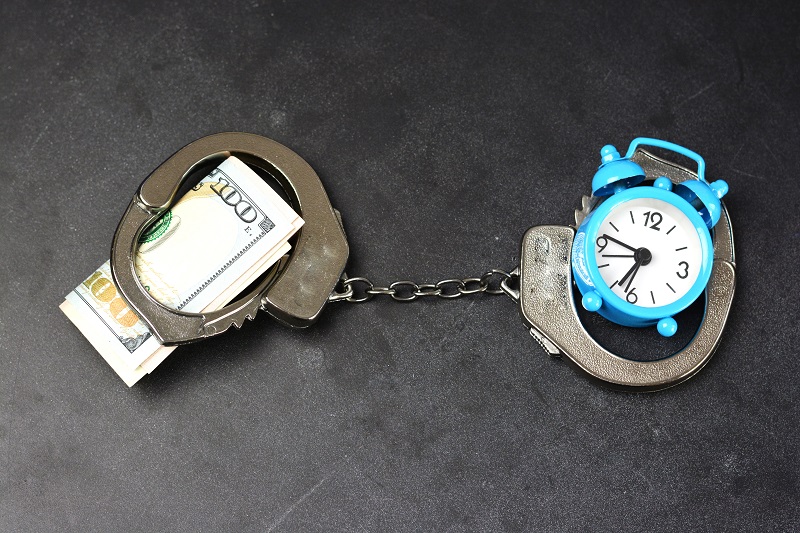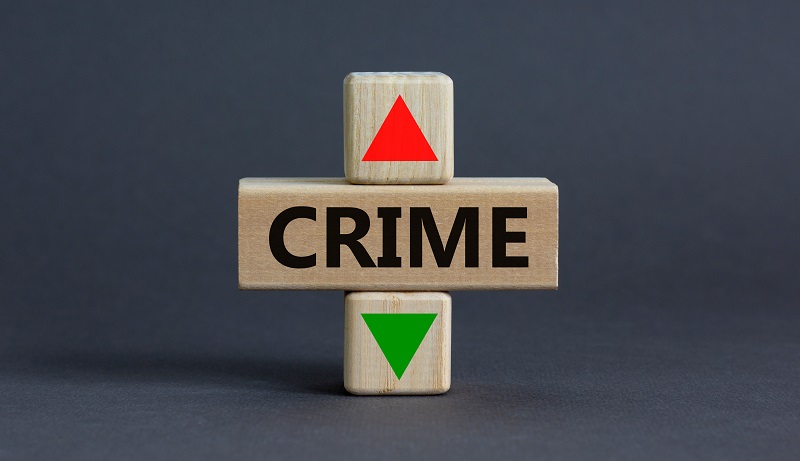Frequently Asked Questions
The cost is based on the bail bond set by the court. You either pay a percentage of the bail bond or you put up property to secure the bail bond. Cost is usually a percentage (10%-15% depending on where you were arrested) of the bail bond.
If you’ve been arrested in the Kansas City metro area you have options for release from jail pending trial. The court may decide to release you on your own recognizance or may require you post bail. If you can’t afford to post the full bail amount in cash, you may be able to acquire a bail bond.
Understanding how bail works can greatly relieve the stress of trying to get someone out of jail. When a person is arrested and put in jail, within a certain time frame they are brought before a judge. The judge decides if the accused should be released until their trial date. If the decision is made to release them, the judge will set a bond–which we call bail–the amount of which is determined by the severity of the crime, the standing of the accused in the community, and whether he might pose a flight risk. There are two types of bonds – secured and unsecured.
A secured bond means that you pay money or put up property to secure your release. An unsecured bond or surety bond means you sign a document that says you will pay a certain amount of money if the defendant breaks his/her bond conditions.
Yes, Bratten Bail Bonds may not require security for the bond if the crime you’ve been accused of is less serious, your ties to the community are strong, and/or the judge doesn’t consider you a flight risk. Contact us to find out if you and your case qualifies.
The property used to secure your bond is known as collateral. Depending on the amount of your bail, you may be able to use various types of property to secure the bond. For higher bail amounts, real property such as a home, or higher-priced items such as a boat or motor vehicle are often used. For lower bail amounts, items such as jewelry, firearms, computers, or other types of electronic equipment will often be enough to cover the bail amount.
Yes; however, the court will not assist you with the paperwork or the process for securing bail using real estate property. The property bond process can be expensive and takes several weeks. Courts generally require that your equity in the property equal at least 150% to 200% of the bail amount.
NO. You have options and should know your rights. There are bail bondsmen that will take you call and try to lock you in with their services. You have the right to ask questions and should choose a bail bondsman who treats you with respect, answers your questions, and gives you information about all your options. Bratten Bail Bonds welcomes you call and will discuss your options. We want our clients to know their rights and bond options BEFORE deciding to work with us.
No. You can choose to stay in jail while you are pending trial. Posting bail ensures that a defendant doesn’t serve any undue time. When you are released, pending trial, you have time to resume normal life/work, obtain a defense attorney, and fully prepare for court. While under some circumstances it may seem more cost effective to not post bail for a defendant there are other factors that should be considered, like how it will appear in court. Walking into court in prison clothing/handcuffs after sitting in jail for days/weeks may imply guilt.
A bail bond is a way of guaranteeing that once a defendant in a criminal case has been released from custody, he or she will attend all court proceedings and comply with all the court’s requirements until the resolution of the case. Posting bail shows you intend to comply with the law, attend court and defend yourself.
A bail bond obligates the responsible party (called the indemnitor) to satisfy the court’s demand for payment of the full bail amount in the event that the defendant should forfeit the bond by fleeing the court’s jurisdiction, failing to appear for all court proceedings, or failing to fulfill any other requirement of the bail agreement. This usually means that unless a defendant who has fled can be apprehended and returned to the court’s jurisdiction or otherwise made to comply with the bail agreement, the indemnitor will lose the property used to secure the bond.
When a defendant fails to appear for a court proceeding, a bench warrant is issued. At this point, there is still a chance that the indemnitor will not lose the property pledged to secure the bail bond. The court will set a deadline by which the defendant must be returned to custody in order to avoid forfeiture of the bond. If the defendant cannot be located or returned in time, the bail bond will be forfeited, and a summary judgment filed requiring the bail bondsman to pay the full bail amount to the court. When this occurs, the indemnitor loses the pledged property.
If the defendant can be located and returned to custody before the deadline set by the court, a bail reinstatement hearing is held to determine whether the bail bond should be reinstated. If the bond is reinstated, the defendant can remain free and the indemnitor retains the pledged property. The bail reinstatement proceeding generally results in added costs to the indemnitor, in addition to the expenses the bail bondsman incurs while apprehending the defendant.
No. You have the right to refuse the request for assistance in securing bail bonds. If you feel the defendant will flee or put your collateral at risk, you may not want to secure bail. Bratten Bail Bonds advises that friends and family should take a good, hard look at their own circumstances and the likelihood that their defendant will comply with the requirements of the bail agreement before deciding to pledge their property for their loved one’s bail.
A bail bondsman gets you out of jail. They know police, legal professionals, and city and county bail bonds processes and rules and they work on you or your loved one’s behalf to get them released from jail. Unless you are wealthy, if someone close to you is arrested the bail bondsman will be one of the first phone calls you make.
Bail Bonds News

24 Hour Bail Bonds is There for You!
Call Us Today! 816-415-4448
24/7 - 365 Days a Year
Missouri's Most Wanted
Tommy D. Weddle
Tommy D. Weddle DOB 08/19/1970 Missouri Parole Violation Warrant for Sex Offender Registration Violation Shaved head
Shannon D. Parker
Shannon D. Parker DOB: 06/16/1974 Clay County, Missouri Probation Violation Warrant for Sex Offender Registration Violation Has dreadlocks




